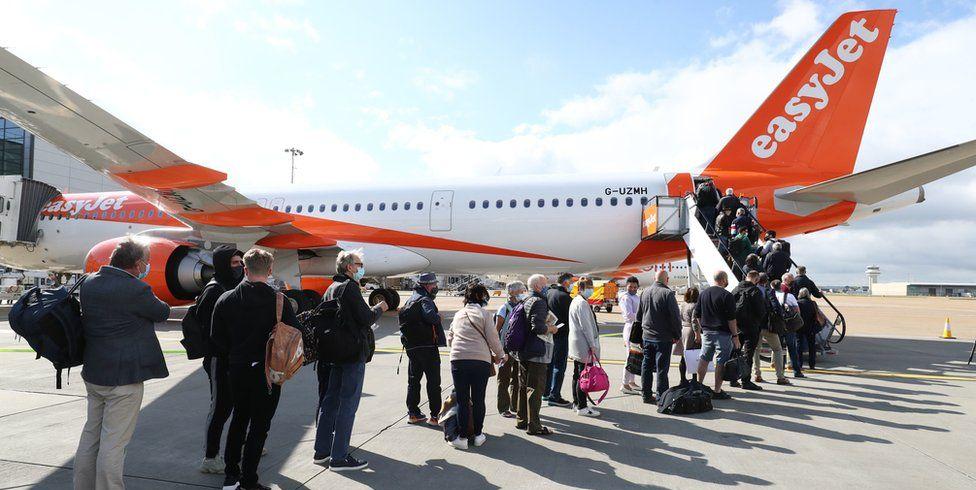
On May 17, the first British tourists flew to Portugal. | PA Uk National News Agency
On 17 May, most of England, Wales and Scotland further eased COVID-19 restrictions and opened up international travel. Government officials said it was "very likely" that Britain would lift all restrictions on epidemic prevention on June 21.
But at the same time, Prime Minister Johnson stressed that the health department is closely watching the spread of the mutated virus in the UK, which was initially found in India. In the past week alone, the number of people infected in the UK with the mutated virus found in India has increased from 520 to 1313.
According to Sky News, England has moved towards the third phase of the "unblocking" roadmap, with the maximum number of people at outdoor gatherings being increased to 30 people, with up to 6 people or two families meeting indoors; bars and restaurants offering services indoors; museums, cinemas, stadiums, hotels, etc. can all reopen. England, Wales and Scotland lifted bans on international travel and implemented green lists.
Travelers are allowed to visit the 12 countries on the green list (e.g. Portugal, Israel, Singapore, Australia, etc.) without quarantine on their return journey. But most popular tourist destinations still fall on the amber list (such as Spain, France, Italy, Greece, etc.), which means that travelers must quarantine at home for 10 days when they return. In addition, dozens of countries such as India and Brazil have been included in the "should not go" red list, and those returning from red list countries must quarantine in the hotel for 11 days at their own expense of 1750 pounds (about 15898 yuan).
Portugal is currently the first preferred travel destination for British tourists. British Airways CEO Shaun Doyle told British media that on the 17th, the route from London Heathrow Airport to Lisbon, the southernmost city of Faro, and the Madeira Islands was "very busy". According to Thomas Cook Travel, 75 percent of the company's orders go to Portugal.
British Commerce Secretary Kwasi Kwautten told the Media that he was "very confident" that the government would lift the remaining restrictions on June 21 and that "if we act in a reasonable manner, there is no reason to think that we cannot fully open on June 21." ”
But British Prime Minister Boris Johnson still stressed that the public should be "careful". "We are closely observing the spread of the mutated virus in the UK, which was initially detected in India, and acting quickly in areas where infection rates are rising," he said. ”
In the past week, the number of people infected with the mutant virus found in India in the UK has increased from 520 to 1313. The report released by the British government on the 16th showed that there were 1926 new confirmed cases and 4 new deaths on the same day; the cumulative number of confirmed cases exceeded 4.45 million, and the cumulative death cases were close to 128,000.
The UK has one of the highest RATEs of COVID-19 vaccination in the world, with more than 36.5 million people receiving the first dose of the vaccine and the number of people receiving the second dose in 2010.
Author: Wu Shu